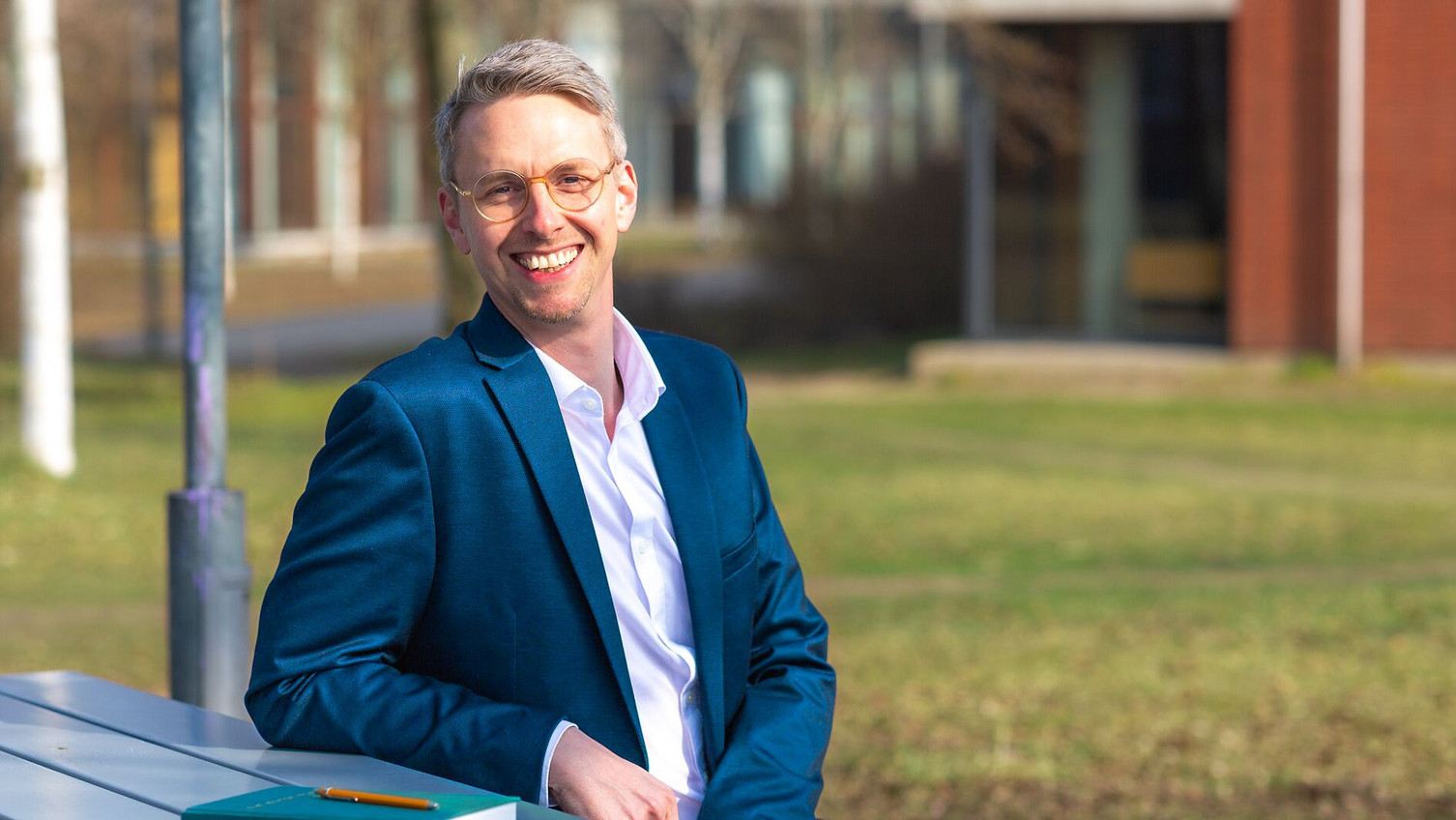New at Leuphana: Prof. Dr. Ulf Hahnel - “Climate change is a collective problem”
2025-04-09 Studies show: People want to do something about climate change. However, when it comes to consumption, travel or heating, their desire is not in line with their behavior. The professor of psychology, in particular collective action for sustainability, is investigating the reasons and consequences of this contrast worldwide. Surprisingly, people often simply lack the necessary information.
Why do we behave sustainably? Ulf Hahnel, for example, investigated why people decide against an electric car. “Many believe that the range is too short,” explains the psychologist. So he asked drivers in the USA and Europe: “Can an electric car cover your annual mobility needs?” The estimates were compared with actual driving behavior. The result: "Even vehicles with a range of around 200 km would have covered over 90% of most drivers' annual journeys. This potential was underestimated by 30% on average. When the real coverage potential was communicated to drivers in a personalized way, this significantly increased the decision to buy an electric vehicle," reports the researcher.
Ulf Hahnel calls for better communication on climate change: “The worse communication is, the more potential there is to distort information,” says Ulf Hahnel, referring to the Heating Act: "An image of Robert Habeck has emerged, who will tear all the heating systems out of the cellar tomorrow. But the law only stipulated that climate-friendly systems had to be installed if the old heating system had to be replaced," explains the researcher.
Ulf Hahnel collects data worldwide: “Climate change is a collective problem.” In India, Denmark, the USA and Nigeria, for example, the researcher and an international team investigated how test subjects perceive the carbon footprint of people with different incomes. "The footprint of the top 1% earners was greatly underestimated, whereas the footprint of low-income groups was overestimated. We saw this pattern in all four countries," explains the researcher. Studies show: The more someone earns, the larger their footprint, for example due to second cars or more flying hours. The more people are aware of this inequality in carbon footprints, the more willing they are to support climate laws to reduce this inequality - such as a flight tax, says Ulf Hahnel.
The question of which measures have the greatest impact on climate change is also often misjudged: "Great relevance is attributed to recycling, for example, as there are many campaigns on this topic. People are aware of the issue," says Ulf Hahnel. The impact of flying and heating, on the other hand, is underestimated.
The willingness to do something about climate change is high: “Even AfD voters, among whom we also find climate deniers, rarely demand fewer measures,” says Ulf Hahnel. The global comparison is interesting here: "In Germany, over 90 percent believe that climate change is real and caused by humans, as described by science. In the USA, the figure is only around 60 percent. The issue is extremely politicized there, which is why the perception of climate change is strongly influenced by political orientation. This is in stark contrast to China, where climate change is not polarizing," explains Ulf Hahnel.
Our own bias often determines which information we consume and consider relevant: "In an experiment, we presented people with scientific findings and fake news on climate change. People with little concern about climate change opted for the false information significantly more often and were more likely to agree with it. Concerned people, on the other hand, predominantly preferred the scientific findings". Such selective search processes, for example on social media, reinforce the polarization of the topic, says Ulf Hahnel.
After working in Freiburg, Geneva and Basel, Ulf Hahnel has now accepted a position at Leuphana: "Sustainability and psychology are more closely linked here than at almost any other European university. A faculty for sustainability is still an absolute exception internationally. It is not enough for me to look at the results of my experimental research in isolation. At Leuphana, I can work together with different disciplines and drive the discourse forward."
Ulf Hahnel studied psychology at the University of Mainz and the University of Auckland, New Zealand. From 2010 to 2015, he worked at the Institute of Psychology at the University of Freiburg, where he received his doctorate in 2014. At the same time, he was a research assistant at the Fraunhofer Institute for Solar Energy Systems (ISE). In 2015, Ulf Hahnel joined the Consumer Decision and Sustainable Behavior Lab at the University of Geneva, Switzerland, as a postdoc (from 2018 as “Senior Researcher and Lecturer”) and was a member of the “Swiss Center for Affective Sciences”. In 2022, he was awarded the prestigious Eccellenza Professional Fellowship of the Swiss National Science Foundation (SNSF). From 2022 to 2025, he was Assistant Professor of Sustainability and Behavior Change at the Faculty of Psychology at the University of Basel. Since February 2025, he has been Professor of Psychology, in particular Collective Action for Sustainability at Leuphana University Lüneburg.

